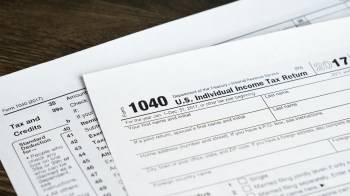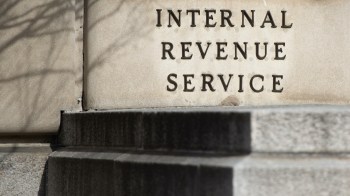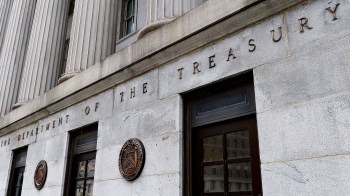Why do people overpay their taxes, then get refunds?
As of the first week of April, 2015, 99 million taxpayers had filed their individual returns with the IRS. Of those, more than 77 million had received refunds. The average refund was running $2,815, about $20 higher than the same time in 2014.
Overall, 118 million American taxpayers (including individuals and businesses) received tax refunds in 2014 (for the 2013 tax year); they got a total of $373.5 billion back from the IRS. All told, the IRS collected $3.1 trillion in gross taxes in 2014, including business and individual income taxes, estate, gift, excise, and employment taxes.
Listener John Thomas of Nevada asked this question: “I’ve always wondered why so many people seem to overpay their taxes and then have to claim a refund. I’m wondering whether there’s a conspiracy there, with the government encouraging people to overpay, because they get free money essentially until people get their refund.”
CPA Rich Sotta in Portland, Oregon, says a lot of his tax-preparation clients intentionally have too much withheld, knowing from prior years’ experience that they will get a substantial refund—often several thousand dollars or more. “It’s so they don’t have a huge tax bill they have to pay in April,” says Sotta. “It’s peace of mind, knowing that they’re getting refunds.” He says some taxpayers want a buffer in case their tax situation changes and their tax bill goes up unexpectedly—for instance, if they have sources of income that fluctuate year-to-year.
Sotta says, it’s true that letting the government over-withhold is like giving the government an interest-free loan. But, he says, “if you aren’t of the habit of being able to budget for yourself, I think it’s a way of saving.” Otherwise, he says, those people would fritter away the extra income in their paychecks away.
That predictable April refund windfall can be used by taxpayers to make a big-ticket purchase, take a vacation, pay down debt or build savings.
Hersh Shefrin, a professor of behavioral finance at Santa Clara University, says research shows that most taxpayers who receive refunds do indeed devote a substantial portion to intended uses like this, rather than splurging and spending most of it right away.
Shefrin says the refund also triggers a response in our brains: “It lights up the reward centers—the nucleus accumbens is the area that gets activated. And there is a dopamine rush when the check actually arrives and you open it. It has a positive hedonic effect.”
Shefrin says engineering a large refund through over-withholding can also be evidence of smart, self-aware financial planning. “People recognize they have difficulty accumulating enough savings on their own. So they look for ways to help themselves counter the temptations of everyday life.”
Roberton Williams, a fellow at the Urban Brookings Tax Policy Center, dismisses the idea of an IRS conspiracy to get American taxpayers to over-withhold, in order to make more money available for government spending. He says if the IRS encouraged more withholding, some taxpayers could wind up in trouble in April if their tax bills were higher than expected.
Williams acknowledges that if the government wasn’t getting more than $300 billion in tax withholding payments that it will ultimately refund, it would have to borrow more. But, right now the government’s borrowing costs are low, less than one percent. “Essentially, what the taxpayers are doing is giving the government a short-term loan,” says Williams. “That makes it easier for the government to cover its bills in the short run; it doesn’t have to borrow as much. But in the long run, it all washes out.”
There’s a lot happening in the world. Through it all, Marketplace is here for you.
You rely on Marketplace to break down the world’s events and tell you how it affects you in a fact-based, approachable way. We rely on your financial support to keep making that possible.
Your donation today powers the independent journalism that you rely on. For just $5/month, you can help sustain Marketplace so we can keep reporting on the things that matter to you.


















